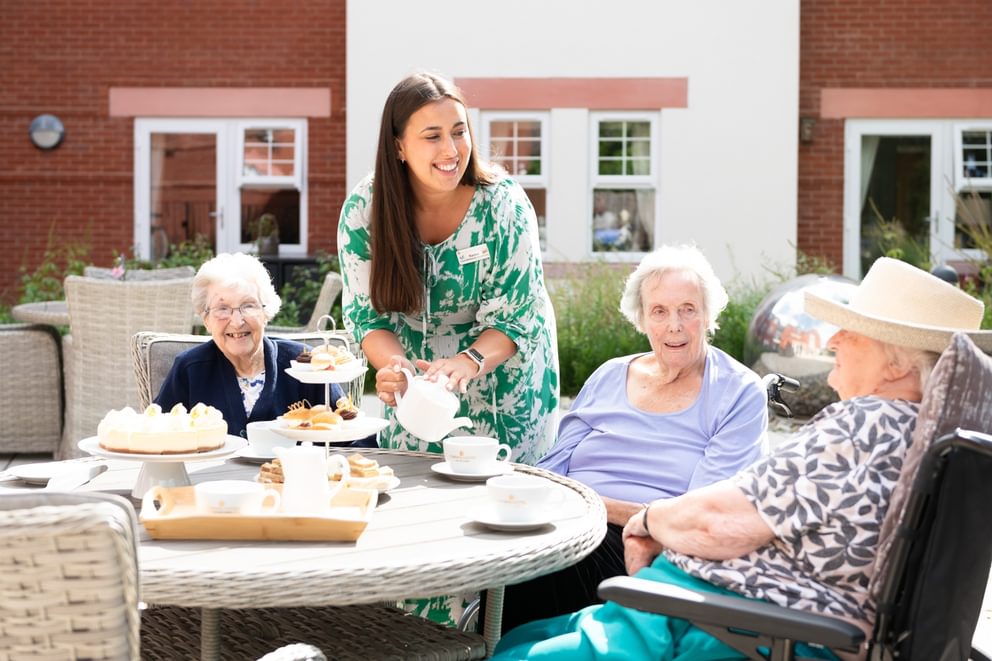Social Interaction & Care Seeker's Wellbeing - What's The Correlation?
Our social needs may change as we grow older, but interaction with others is a key part of wellbeing for all of us, no matter our age.
Having continuous, positive social interaction is one of the core benefits of living in a care home when compared to living alone. But what is the connection between social interactions and resident wellbeing and how do care homes support the social and emotional needs of older people?
We’ve put together four key correlations between social interactions and wellbeing in older people to help demonstrate just how important it can be.
Social Interactions Slow Cognitive Decline
It’s common knowledge that as we get older, our brains work a little differently compared to when we’re younger. This can vary depending on the person, their lifestyle and genes. According to Age UK, some of the common thinking skills that are affected by normal cognitive ageing include:
- Short term memory
- Reasoning
- Speed of processing information
Studies have shown that having positive and close relationships with others and interacting with others meaningfully on a regular basis can help older people maintain their thinking skills and slows cognitive decline. Those who have more social interaction are also at a lower risk of dementia.
This goes hand in hand with the fact that loneliness can often exacerbate loss of thinking skills, possibly due to certain parts of the brain not being exercised as much if we aren’t frequently communicating with others.
Staying Active
One of the benefits of social activities for older people is that being sociable keeps you both physically and mentally active.
Social activities, especially those taking place in a care home such as gardening, clubs, or having visitors, often promote exercise or movement in some way and we all know how important keeping active is for our health.
When you’re physically active, this releases feel-good chemicals into the brain, helping to support your emotional and mental health too.
Not to mention that a problem shared is a problem halved! Talking through your day and any worries with others makes you feel less alone, especially in an environment where other people may feel the same way.
Allows You to Stay Connected to the World
The social needs for our residents are mostly the same as for everyone else, we all need love and connection for our health. However, staying connected to others and by extension, the outside world, is another benefit of staying sociable.
By interacting with others on a daily basis, like you would when living in a care home, it increases our knowledge of other’s experiences and even the wider news. This, in turn, works out our brains further, helping with thinking skills and empathy.
Reduces the Risk of Depression
According to the NIHR, one in three people aged 50 or over report feeling lonely and the more lonely we feel, the more likely we are to experience depression.
So how do we combat loneliness, particularly for wellbeing in older people? By encouraging social interaction at every opportunity. One of the best ways to make instances of social interaction easier for the elderly is for them to move into a care home or even have regular short stays.
Don’t believe us? There are hundreds of studies into the effects of socialising on mental and physical health, not just for older people, but for everyone. We will put some reference links below for you to find out more, but a key takeaway here is that the social needs of our residents cannot be ignored, especially when looking at health as a whole.
Supporting the Social Needs of Older People
Living, or staying in a care home, can help aid with all of these needs by providing regular social interaction, positive discussions and wellbeing activities for older people. At our care homes in England and Wales, we provide plenty of activities to help our residents stay mentally and physically fit.
To find out more about what our care homes offer, find your nearest care home and book a visit. Or give us a call on 0808 169 8661.
